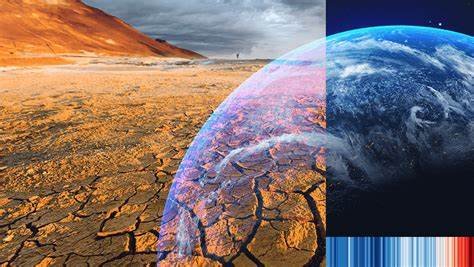Climate change is one of the most pressing issues of our time, affecting the environment, economies, and societies across the globe. As the impacts of climate change become increasingly evident—ranging from rising sea levels and extreme weather events to biodiversity loss and food insecurity—the question of responsibility for its causes and consequences becomes more urgent. This ethical dilemma encompasses various stakeholders, including governments, corporations, and individuals, each playing a distinct role in contributing to or mitigating climate change. Here, we explore the ethical implications of climate change responsibility and answer the critical question: who bears that responsibility?
- Historical Responsibility: Developed vs. Developing Nations
One of the most significant ethical considerations in the climate change debate is historical responsibility, particularly between developed and developing nations.
– Developed Nations: Historically, industrialized countries have contributed the most to greenhouse gas emissions since the Industrial Revolution. Their economies developed on fossil fuels, leading to significant environmental impacts. Consequently, many argue that these nations should bear a larger share of responsibility for climate change, providing financial and technological support to developing countries for adaptation and mitigation efforts.
– Developing Nations: On the other hand, developing nations are often the most vulnerable to the impacts of climate change despite contributing minimally to global emissions. These countries may lack the resources to address climate-related challenges and adapt to the changing environment. Thus, the ethical question arises: should developing nations be held accountable for their emissions, or should the historical context of developed nations’ contributions guide responsibility?
- Corporate Accountability
Corporations also play a significant role in the climate change discourse. Large multinational companies contribute a substantial portion of global greenhouse gas emissions, primarily through their operations, supply chains, and product lifecycles. The ethical responsibilities of corporations can be examined from several angles:
– Transparency: Corporations have an ethical obligation to disclose their emissions and environmental impacts accurately. This transparency allows consumers and stakeholders to make informed choices and hold companies accountable for their contributions to climate change.
– Sustainable Practices: Companies should prioritize sustainability in their operational and supply chain processes. This involves investing in clean technologies, reducing waste, and aiming for net-zero emissions. Implementing sustainable practices not only fulfills their ethical responsibility but can also appeal to consumers increasingly concerned about environmental impacts.
– Advocacy and Engagement: Corporations wield significant influence over policymaking. They have a responsibility to engage constructively in climate policy discussions and advocate for effective solutions to address climate change, rather than lobbying against regulations that seek to reduce emissions.
- Individual Responsibility
While systemic and corporate behaviors contribute greatly to climate change, individuals also bear a share of responsibility. The actions and decisions made by individuals can either exacerbate or alleviate the impact of climate change:
– Consumption Choices: Individual consumption patterns—ranging from energy use and travel to dietary habits—can contribute significantly to greenhouse gas emissions. The ethical responsibility lies in making informed choices that minimize environmental impacts, such as reducing meat consumption, using public transport, and opting for sustainable products.
– Advocacy and Education: Individuals have the power to influence change by advocating for climate action, raising awareness, and participating in grassroots movements. This ethical responsibility promotes collective action and encourages systemic change at various levels.
– Voter Engagement: By actively participating in the electoral process, individuals can support candidates and policies focused on climate action. This politically engaged approach enables citizens to hold their governments accountable for climate commitments and promote equitable solutions.
- Intergenerational Responsibility
Another ethical dimension of climate change responsibility is intergenerational equity. Current generations have a profound impact on the environment, affecting not only their own quality of life but also the future prospects of generations to come.
– Preserving Resources: There is an ethical obligation to preserve natural resources and ecosystems for future generations. Sustainable management and conservation of the environment are essential to ensure that future people have the means to thrive.
– Mitigation Efforts: The current generations must actively work towards significant mitigation efforts to combat climate change. Failure to take action may lead to irreversible consequences, leaving future generations to face the burdens of inaction.
Conclusion
The ethics of climate change responsibility is multi-faceted and complex, involving historical, corporate, and individual dimensions. While developed nations and large corporations hold significant obligations due to their historical emissions, individuals also play a crucial role through their choices and advocacy efforts. Ultimately, a collective responsibility emerges, necessitating collaboration among all stakeholders to address the climate crisis effectively. By recognizing and acting upon these ethical obligations, society can move towards a more sustainable and equitable future, creating a cleaner planet for generations to come.










